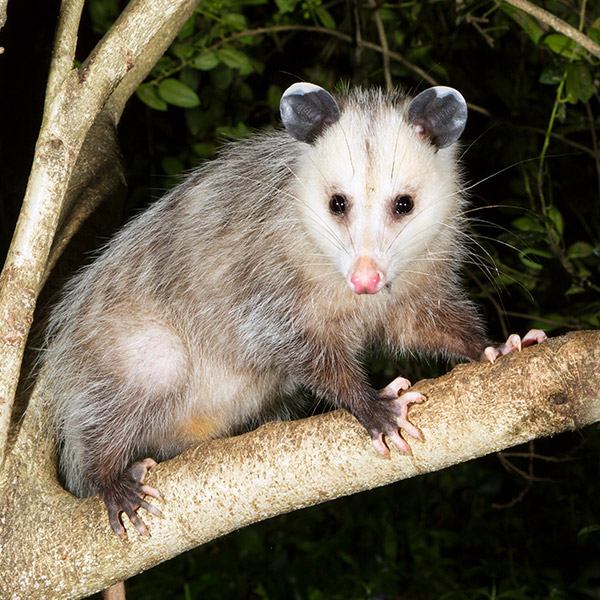Virginia Opossum
Didelphis virginiana

Animal Ambassadors
While there are many kinds of marsupials in the world, the Virginia Opossums are the only marsupials in North America. This means they carry their young around in a pouch on their stomach. Baby opossums are smaller than a dime, and will live in the pouch for up to two months. They can have up to 20 babies at a time, but often only about half of them survive. They also have a prehensile tail that they use to help them climb and hold onto things, in addition to specialized feet with an opposable toe. They are nocturnal and typically solitary. These creatures only came to the West Coast around the time of the Great Depression, transplanted over by people for food. You may have heard the phrase “playing possum”, and that comes from these guys’ natural defense; when threatened, an opossum will lay down, flop out its tongue and pretend it’s dead. They also give off a bad smell to sell their act. This puts predators off guard and gives the opossum the chance to slip away. Opossums are generalists and have adapted well to urban environments. Because of this, and their tendency to get into trash cans for the tasty treats within, they can be seen as nuisance animals. But we like to encourage our communities to strive for cohabitation with wildlife, so if you don’t want little marsupial house guests, leave your trash and your kibble inside!
Fruits, grains, insects, snails, earthworms, carrion, snakes, mice and other small mammals
West Coast, Eastern US, Central America
2 years / 4 years
Varied; deciduous forests, open woods, farmland, marshes, swampland, residential areas
13 - 37 inches
1.7 - 14 lbs
